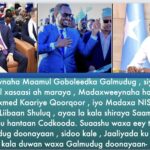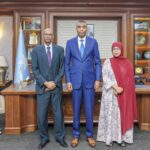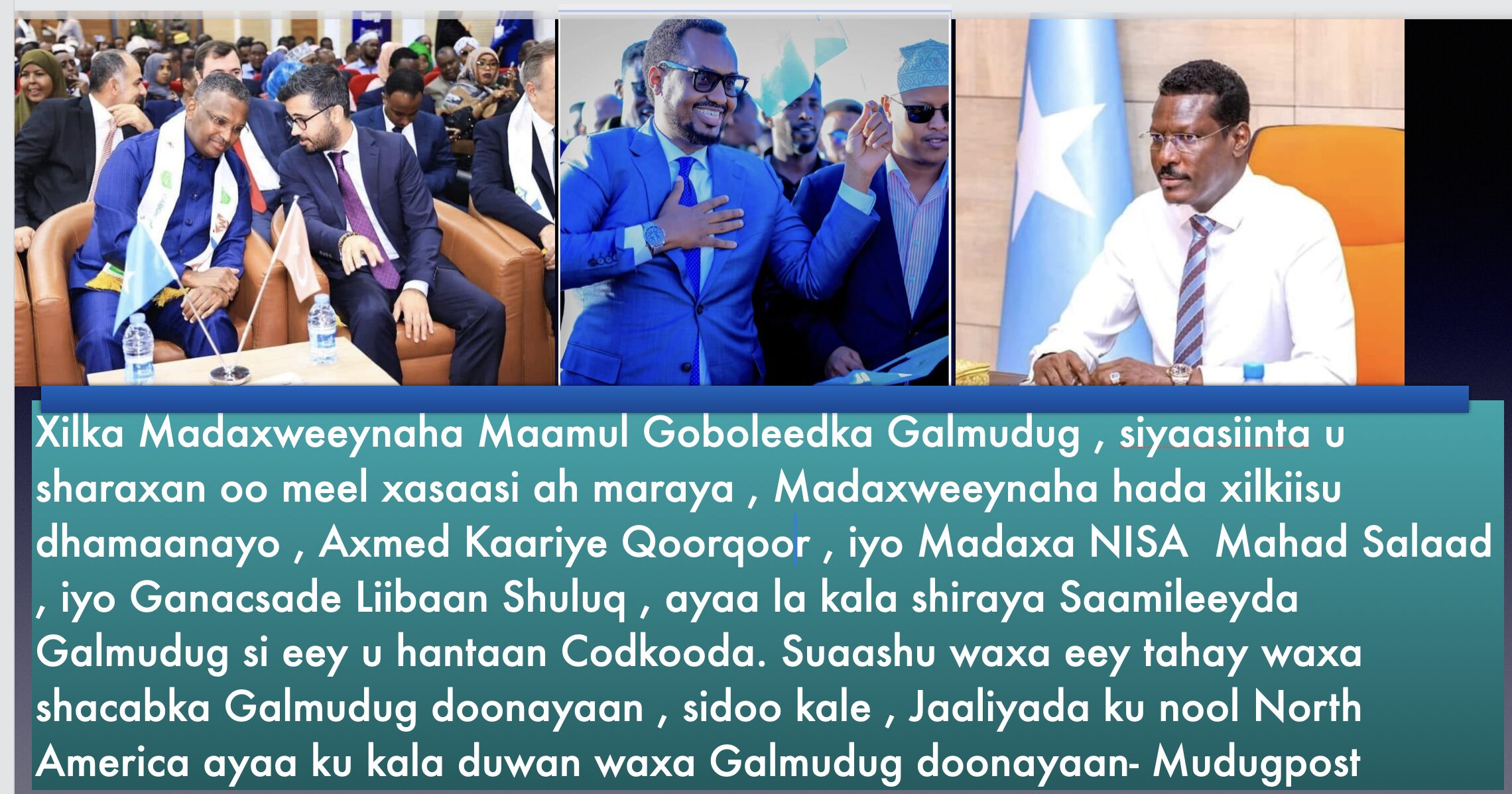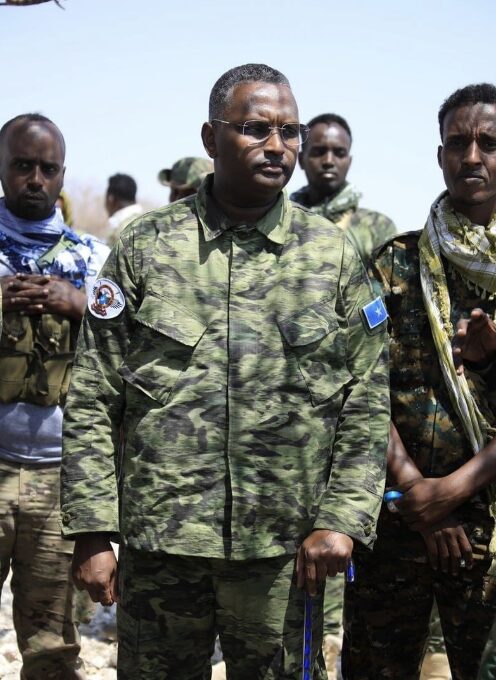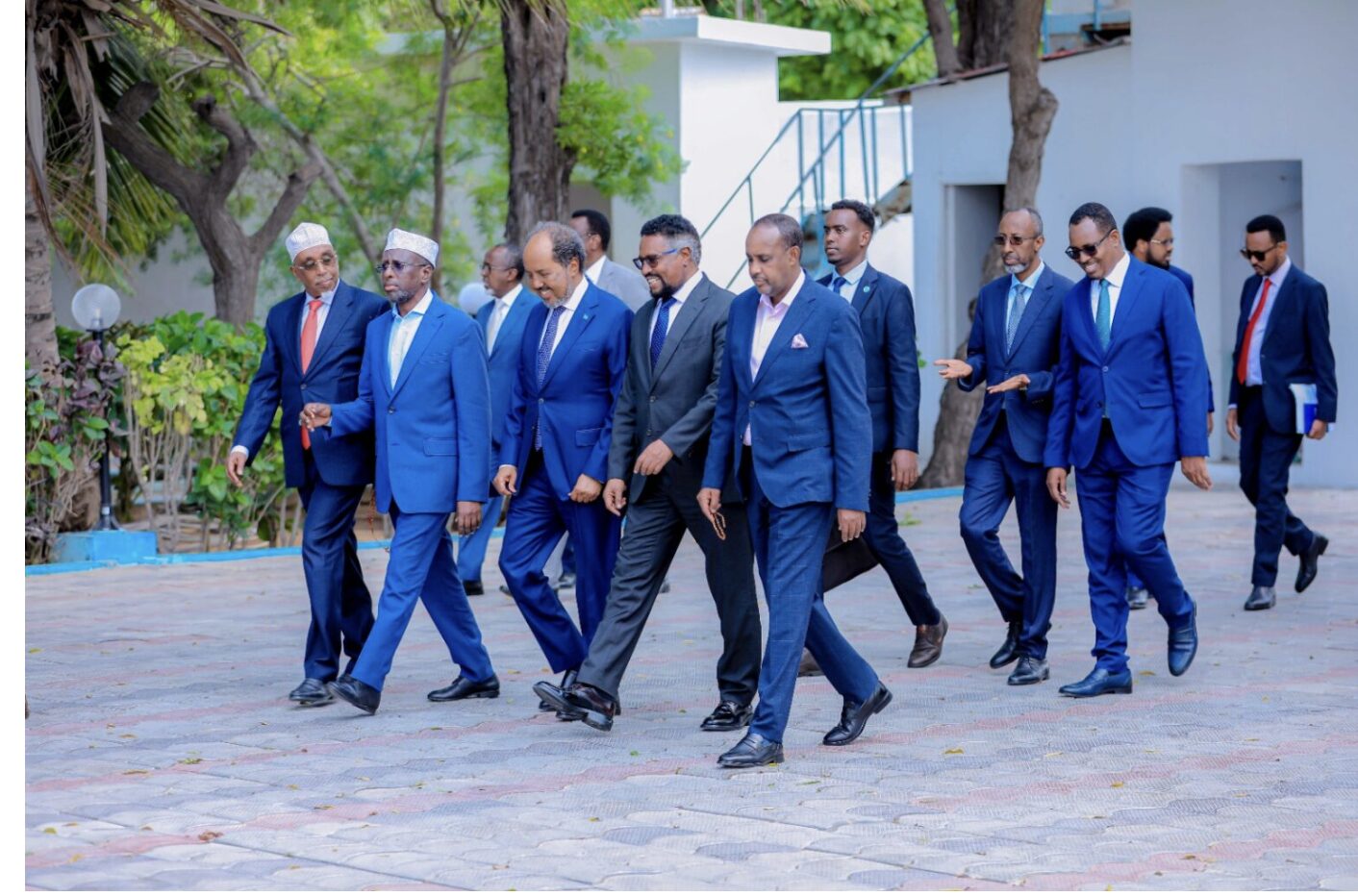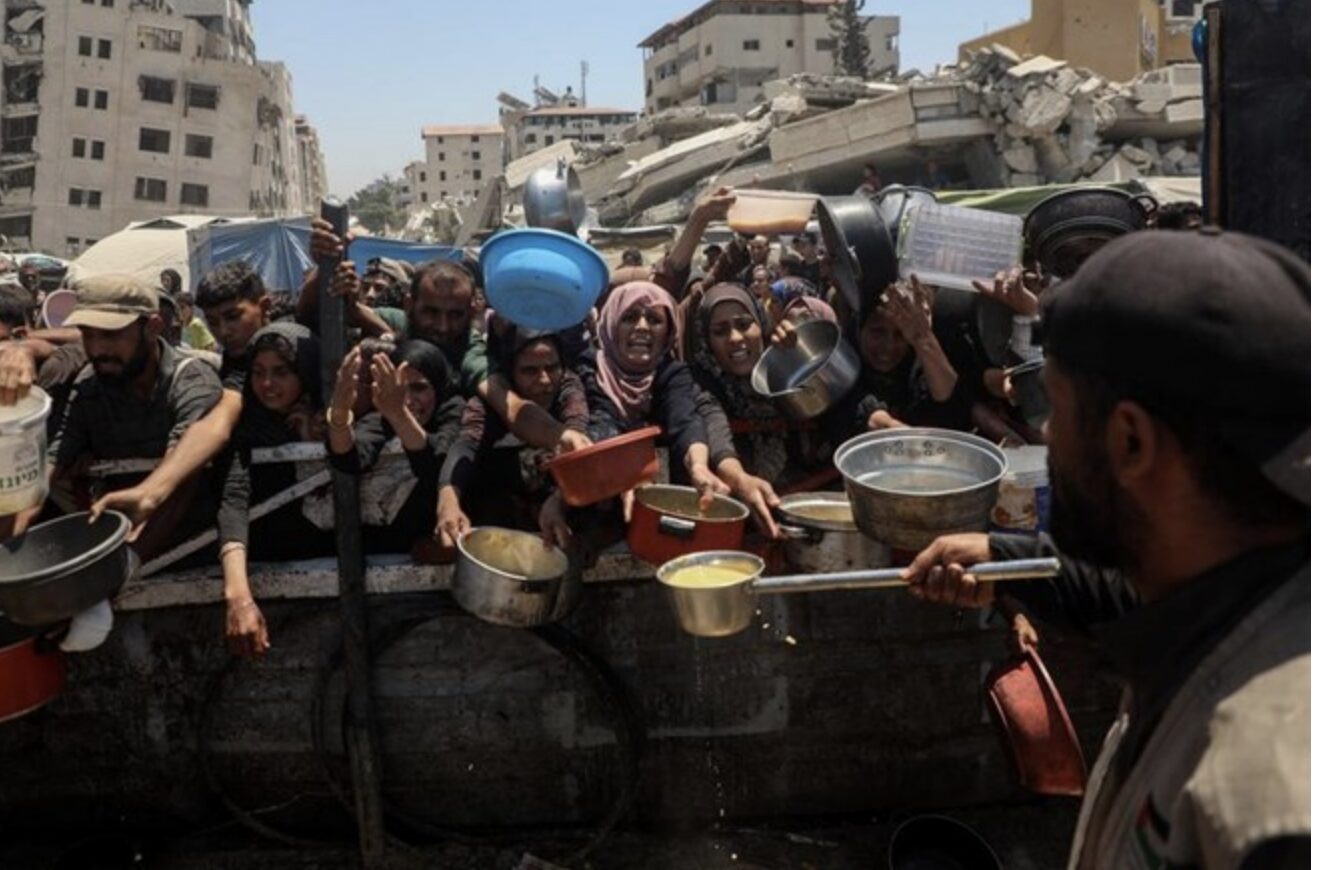The people of Somalia endured painful historical misfortunes consisting of mockery of one-person-one-vote political elections that resulted in a military coup, a long period of dictatorship that was ousted with armed rebellion, an internecine civil war and complete disintegration of the Somali state replaced by foreign and clan dependency. Those misfortunes deeply affected the livelihood, perceptions, and conscience of the Somali people in multiple ways and undermined the foundations, values, perceptions, and social cohesion needed for rebuilding the Somali State.
Nevertheless, the majority of the Somali people share a common reality and a sense of necessity to reconcile and unite as Somali citizens, forming a truly democratic state governed by the rule of law and a free market economy. There is no question that the establishment of a Somali democratic State in the Horn of Africa is an extremely challenging endeavor. At the same time, it is the only suitable solution for Somalia. The process of achieving the collective goal of reconciliation, peace, and a sovereign democratic state has been facilitated by foreign powers with political, diplomatic, economic, and security support. For caveat, not all foreign supports were or are positive. Unfortunately, the results of the process, which continued for many years, have been disappointing because the Somali leaders entrusted with leading the process failed to serve their country and compatriots with wisdom, honesty, integrity, competence, and democratic governance.
Although the blame is attributable to different causes and leaders, President Hassan Sheikh Mohamud bears a major share of responsibility for three primary reasons. First, he is the only leader in the history of Somalia to have been elected twice to the position of President of Somalia. Second, he received no comparable second-chance opportunity, either domestically or internationally. Third, he claimed a higher level of education and professional experience as an educator and civil society activist who remained in the country after the collapse of the Somali state. However, President Hassan’s leadership didn’t reflect the qualities and values associated with being an educator, a civil society activist, a firm believer in democracy, and an observant of Islamic teachings. His leadership has been marred by incompetence, duplicity, and traits reminiscent of Orwellian and Machiavellian tendencies. He lacked the qualities of servant leadership and rarely followed the norms and practices of good governance and public administration principles and procedures.
Thus, President Hassan personifies Toxic Leadership defined as ““an intentional or unintentional series of acts that undermine and discourage those followers who genuinely seek to carry out the mission and vision of the organization, who then become stifled in the process of achievement by self-serving leaders who put missional or personal gain above the needs of followers, creating a demoralized state that deteriorates organizations from the inside out. (Gandolfi & Stone 2022)” The characteristics of a toxic leader include a lack of concern for the well-being of fellow citizens, abuse of power, neglect of development, a lack of empathy, inflexibility and intolerance, a focus on personal gain, destructive communication, manipulation and control, and a lack of accountability. In fact, the widely publicly supported campaign to defeat Al Shabab failed because of the toxic governance environment he created. Former Deputy Prime Minister and Foreign Minister Hon. Fawzia Yusuf Haji Adam wrote an article on the subject, titled “the Illusion of Sovereignty: Why Somalia Still Needs Foreign Troops Despite 20 Years of Military Training.”
The primary responsibilities of President Hassan during his two terms have been to lead the construction of a democratic state from scratch in post-conflict Somalia. In this regard, from 2012 to 2024, Somalia received substantial international political, economic, and security support to stand on its feet. As of today, despite numerous resolutions by the UN Security Council urging Somali leaders to achieve sovereign capability by the end of 2024, Somalia remains under Chapter VII for being a threat to international peace and continues to rely on the support and protection of international partners.
Unfortunately, President Hassan became notorious for their obsession with how to accumulate wealth and remain in power for an extended period like other dictators. Following his defeat in the 2017 election, the Somali people, who are allergic to authoritarian governance, expressed their joy in public demonstrations. His chance for reelection in future was considered unthinkable.
Ironically, President Hassan saw an opportunity to come back to power by joining a coalition of opposition politicians against President Farmajo, who pursued the suicidal policy of power grab. Among the coalition, President Hassan was a vocal, persistent, and fiery democrat, talking about everything. He accused President Farmajo of abusing power by orchestrating a sham one-person, one-vote election without the consent of the opposition and regional federal states.
Miraculously, for some combination of reasons, President Hassan was reelected in May 2022, with the presumption that he would always remember his numerous vitriolic attacks against President Farmajo and would prove, in contrast, his democratic credentials and commitments. Unfortunately, those presumptions turned out to be false immediately after his reelection.
He brazenly went ahead to build personal power, ensuring his continued stay in power, and methodically implemented a plan for consolidating power in five ways. First, he appointed a Prime Minister and a Council of Ministers on the condition that they assume the functions of the president and the executive branch of the federal government. Therefore, the President became head of the executive in contravention of Chapter 8 (Articles 97-104) of the provisional constitution. According to the Somali Constitution (on par with the Italian Constitution), the President is the head of the State (not the head of the government), the symbol of national unity, the Commander-In-Chief of the Armed Forces, and the guardian and promoter of the constitution. He has constitutional powers to fulfill adequately his exclusive presidential responsibilities. All Government decrees must be signed by the President in conjunction with the Prime Minister and the Competent Minister to become legal.
Second, he appointed close kin and loyalists to key government positions, particularly in the presidency, foreign affairs, finance, port, airport, revenue departments, police, military, intelligence, judiciary, and the Mogadishu local government. The use of nepotism, corruption, patronage, harassment, and withholding of budget funds from dissenters became the norm. He recruited, trained, and equipped a Presidential battalion loyal to him.
Third, he marginalized Jubbaland and Puntland States, disregarded Somaliland’s secession campaign, and co-opted the weak presidents of Galmudug, Southwest, and Hirshabelle states by unlawfully extending their terms in office in exchange for being members of his political party and supporting his political machinations to change the constitution and the election system. Fourth, he corrupted the leadership of the federal parliament, who abdicated their parliamentary responsibilities of oversight over the presidency and the executive. Many members of parliament have been appointed to cabinet positions or to plum administrative positions. Therefore, the two chambers of the federal parliament became dysfunctional, rubber-stamped, and unpopular.
Fifth, he selectively, unlawfully, and clumsily changed 4 Chapters of the 15 Chapters of the provisional constitution for personal interest. The selective change is contrary to the scope of the completion process of the constitution, sketched in the provisional constitution itself. Therefore, the change has suspended the validity of the entire provisional constitution, as it’s a single document.
The new Chapter 4 introduces a one-person, one-vote election model based on political party and 4.5 clan representation systems, the election of the president by the people, and an increase in the term in office of the federal president, parliament, and federal member states from 4 to 5 years. The election of the president by the people changes the parliamentary system of the federal government. The one-person, one-vote election based on political party and 4.5 clans is unconstitutional and impractical.
In three years, President Hassan travelled abroad more than 115 times, staying outside the country for at least 17 months, with an estimated cost of $46,000,000, which is 13.33% of the 2024 annual domestic revenue. It’s hard to rationalize President Hassan’s reasoning for staying in Dhusamareb for 4 months and travelling abroad 4 times within a month, sometimes for NGO meetings or brief encounters. The President’s frequent travels wasted public resources, compromised government performance, and diminished the presidential prestige and respect for Somalia’s foreign policy.
The purported accomplishments in the past three years are debt relief, a lift of the arms embargo, liberation of certain districts from Al Shabab with high cost (later reconquered by al Shabab), the joining of the UN Security Council as a non-permanent member and of East African Community (EAC), and the amendment of 4 chapters of the constitution. These accomplishments shared by successive Somali governments and International Partners are helpful but not developmental. No progress has been made on the essential tasks of state-building to gain the status of a sovereign state free from foreign dependency.

It can be made a case that President Hassan didn’t read thoroughly the provisional constitution or decided to completely ignore all the provisions of the constitution. Each of the 143 articles of the constitution addresses an important matter that needs full attention and adherence in the process of state building. The failure to understand and appreciate the full import of each article pushes Somalia to the brink of anarchy. Many young generations are fleeing Somalia and dying in the desert and sea for lack of a hopeful future in their country.
The future of Somalia under President Hassan Sheikh Mohamud is bleak. Two scenarios are in the offing. The first scenario is political violence that would lead to disastrous consequences. In the second scenario, as Somalia is under Chapter VII of the UN Charter, early intervention by the International Community could prevent further escalation of the crisis and allow the development of a roadmap for a political process that ensures an election model by the end of August 2025.
Finally, as an appeal, Somali Intellectuals, businesspeople, and religious leaders must join efforts to resolve the stumbling blocks to the completion of the provisional constitution and devise a simple, feasible, and credible election process for 2026, delivering an accountable government committed to the rule of law. Politicians will continue to seek absolute power, but they must be restrained and held accountable from day one.
Dr. Mohamud M Uluso
Mohamuduluso@gmail.com

